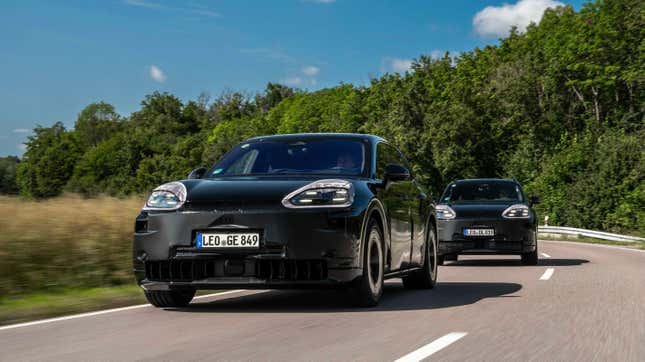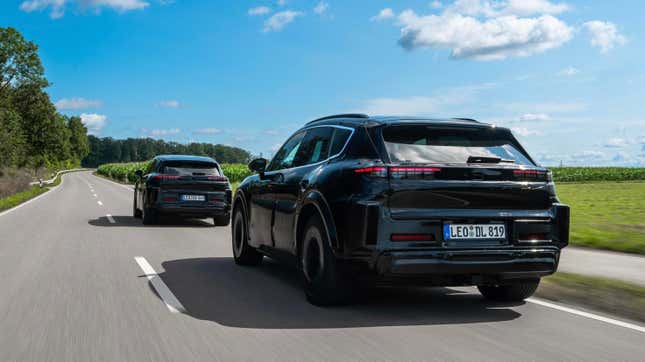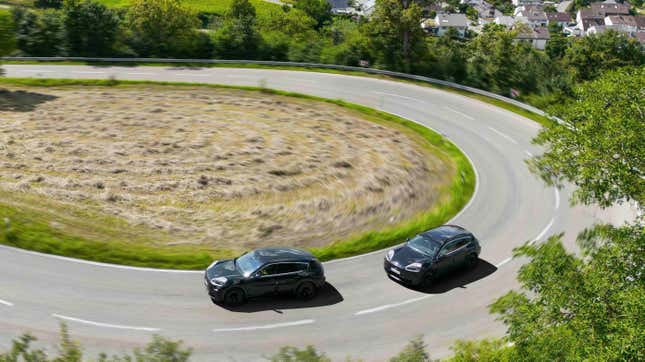
If you can believe it, more than 20 years have passed since Porsche introduced the first generation of its Cayenne SUV. What was once a super controversial model that was talked about like it would lead to the death of Porsche has become one of the brand’s biggest sellers and the benchmark of the performance SUV sphere. Porsche is gearing up to launch the fourth-generation Cayenne, which will only be offered as a fully electric vehicle when it goes on sale within the next couple years.
The fourth-gen Cayenne EV will be built on an evolved version of the 800-volt Premium Platform Electric (PPE) architecture that was jointly developed with Audi and is used by the new Macan EV. Porsche says that in addition to having the driving characteristics the brand is known for, the electric Cayenne is targeting “high-capacity and stable charging, high efficiency, and a high level of comfort and everyday usability.” After “an extended phase” of digital testing and real-life tests at Porsche’s Weissach proving grounds, test prototypes of the Cayenne EV have hit the roads all over the world. By the time the new Cayenne launches, it will have covered millions of miles across all sorts of different terrains and climates.

From Porsche’s released images, the Cayenne EV looks to be a bit larger than the current model but with similar proportions; it remains to be seen whether the electric Cayenne will also offer a Coupe variant. Four-point headlights are mounted up on the fenders — it doesn’t seem like the Cayenne will have the same split-headlight setup as the Macan — and the rear end has a wide light bar. We can also see an active rear spoiler, active aero flaps in the lower bumper intake, pronounced fender flares and a large rear diffuser. Basically, it looks like a Cayenne that has Porsche’s latest electric design cues.
Porsche says its product strategy could have more than 80 percent of its cars as fully electric models by 2030, but that’ll depend on customer demand and EV infrastructure in various markets. To that end, Porsche will continue to sell the existing third-gen Cayenne alongside the electric one, at least through 2030, to satisfy those customers that still want an internal combustion engine. The current Cayenne already got an extensive facelift last year, but Porsche says it “will be further developed with major technological investment in the future,” including a focus on improving the efficiency of the twin-turbo V8 and its hybrid versions to make sure it meets new emissions regulations.
That’s a similar strategy to what Porsche is doing with the Macan and 718, continuing to offer the existing gas-powered generations alongside the electric-only next-gen models, though in major markets like Europe the ICE models are seeing a swifter death. Porsche just revealed the third-generation gas-powered Panamera at the end of last year, so a fully electric Panamera is still a ways off, and we won’t see an electric 911 anytime soon. Following the launch of the Cayenne EV, Porsche will be introducing a larger electric SUV, codenamed K1, that will have three rows of seats.








